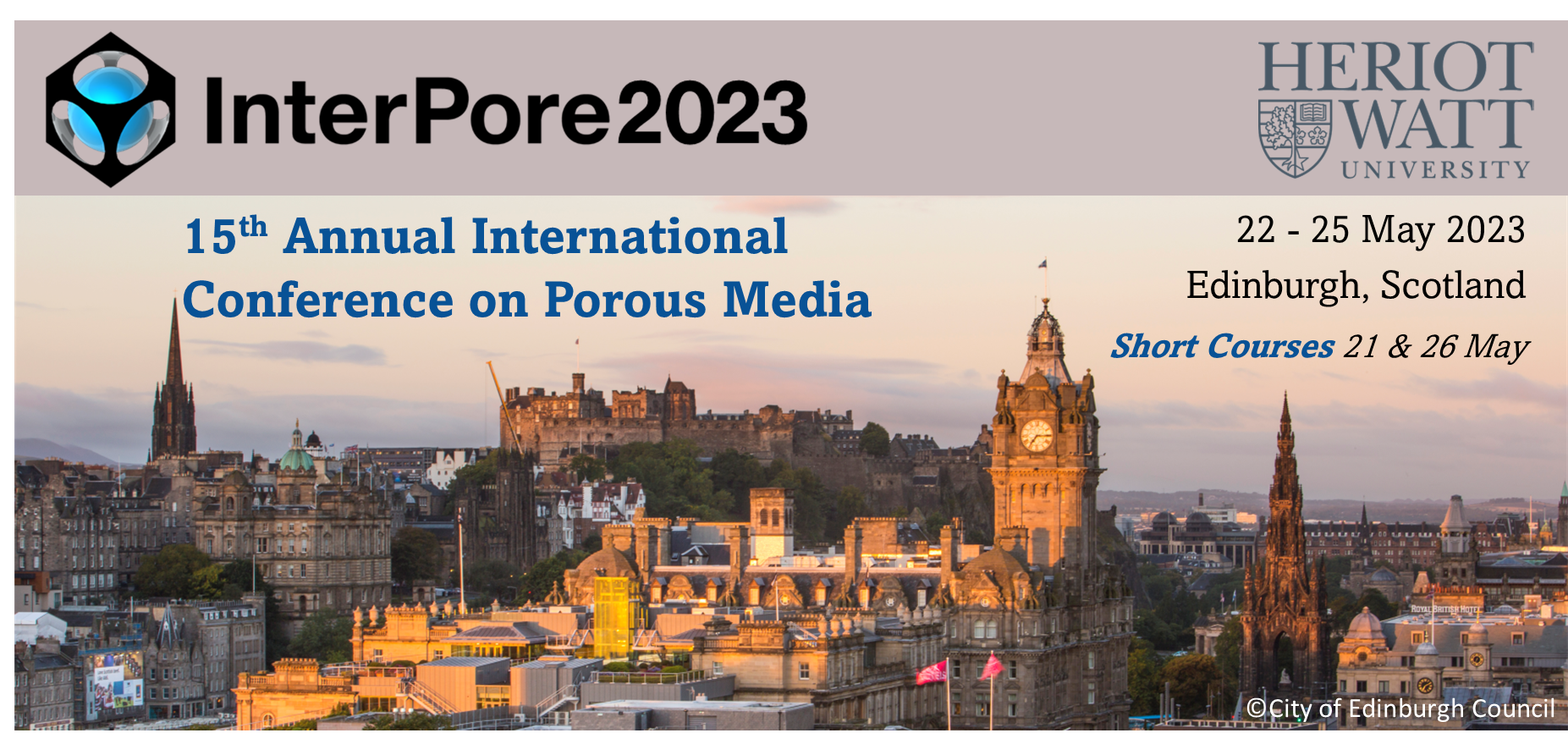Speaker
Description
Solute dispersion in heterogeneous porous media is classically parameterized by Fickian-type macrodispersion concepts, matching the rate of change of second central spatial moments. As diffusion is an irreversible process, the second central moments computed by a Fickian macrodispersion model can only increase – also upon flow reversal. By contrast, if solute transport was strictly advective, the second central moments would increase due to heterogeneity in forward motion, and symmetrically shrink upon flow reversal until the plume shape of the initial distribution has been recovered. The interplay between advective spreading and diffusive mixing makes solute dispersion partially reversible. We investigate this behavior for uniform-in-the mean forward and backward motion, considering both the ensemble averaged second central moments of individual plumes that start as points (effective moments) and the second central moments of the ensemble averaged concentration (ensemble moments). The ensemble moments include the uncertainty of the plume's center of gravity, so that effective moments are considered to be more representative for the mixing behavior of single solute plumes. Our analysis includes new analytical results based on stochastic perturbation theory, and particle-tracking random-walk simulations in periodic domains. We investigate (i) how hydraulic medium properties and transport parameters influence the partial reversibility of the effective and ensemble moments, (ii) over which time scales they shrink upon flow reversal, and (iii) how long it takes until the asymptotic dispersion coefficients are practically reached. The perturbation theory results agree well with the random-walk simulations for cases of low log-conductivity variance. We find that parameter changes favoring mixing (increasing variance of the log-K field, increasing anisotropy of the field, decreasing Péclet number, increasing reversal time) lead to a decrease in reversibility. As long as the advective memory dominates, both ensemble and effective moments undergo a finite phase of shrinking upon flow reversal. Before the original starting point has been reached, this is followed by an increase in second central moments once diffusion has made the solute particles forget their exact trajectories of the forward motion. The shrinking phase is shorter and less pronounced for effective moments because at early times, the effective plumes are smaller and sample less variability of the velocity field. Thus, effective moments are less reversible than ensemble moments, and more suited for mixing parameterization, although they are no measure for pure mixing either. In backward motion, even after the moments begin to increase again, the influence of advective memory persists over hundreds of travelled correlation lengths, which implies that it is impossible to run practical applications long enough for the plume to escape the influence of the change in mean flow direction. Overall, our results shed light on the interpretation of dispersion coefficients derived from breakthrough curves in push-pull tests, which, different to intuition, are not measures for pure solute mixing but account for both the mixing contribution to dispersion, as well as for advective solute spreading.
| Participation | In-Person |
|---|---|
| Country | Germany |
| MDPI Energies Student Poster Award | Yes, I would like to submit this presentation into the student poster award. |
| Acceptance of the Terms & Conditions | Click here to agree |







